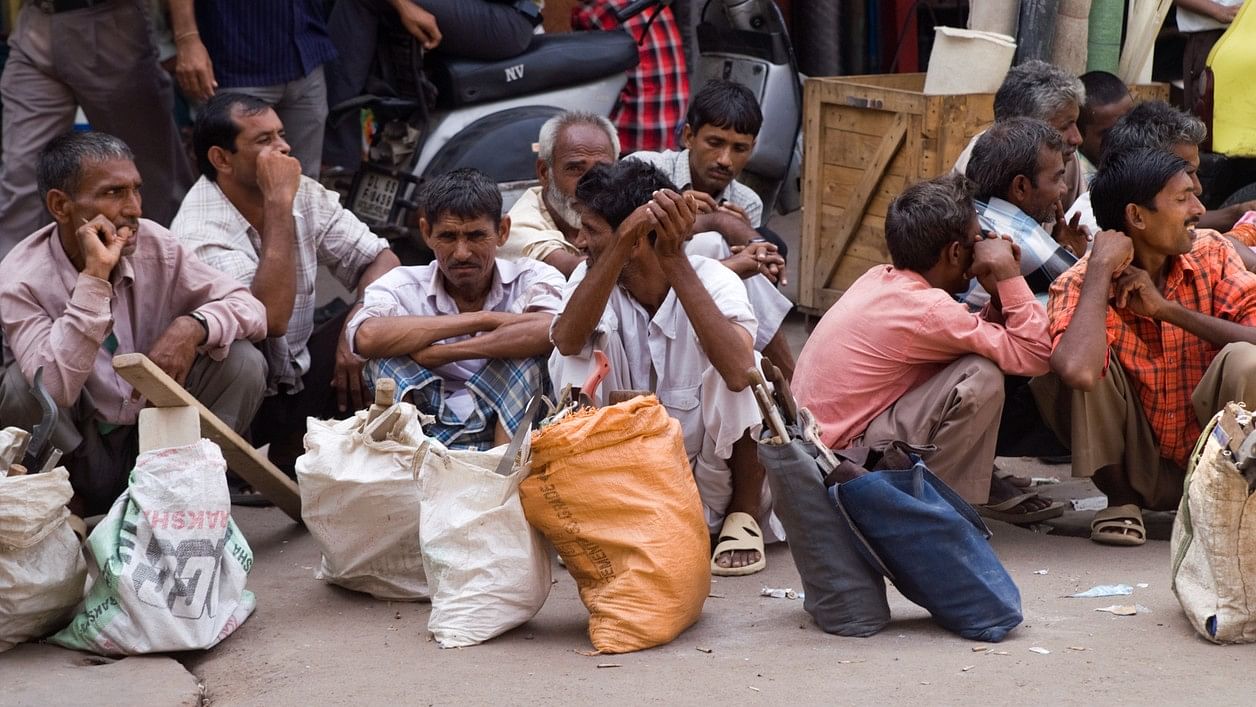
Only with jobs can there be development with dignity. Economists often focus on growth rate, which they feel will lead to job creation. Instead, we need to create jobs which, in turn, will lead to growth.
Credit: iStock Photo
Earlier I had argued how the 2024 elections resembled the 2004 elections. In both elections, the ruling Bharatiya Janata Party (BJP)-led National Democratic Alliance (NDA) fought the polls under the broad message that the Indian economy was doing well. It was expected to do well, but ended up in shock: in 2004, it could not form the government, while in 2024, it managed to cross the halfway mark of 272 Lok Sabha seats with the help of its NDA allies. Analysts felt that the NDA’s ‘India Shining’ campaign in 2004 was too urban-focused and ignored the realities in rural India. Similarly, in 2024, rural India did not share the government’s sentiments that India was economically galloping.
As we look forward to more analyses on the 2024 elections, one needs to reread an important monograph titled ‘Development with Dignity’ by Amit Bhaduri, former Professor of Economics at the Jawaharlal Nehru University. Written in 2005, just after the 2004 elections, this monograph is a timeless classic on the Indian economy, which tells you ‘the more things change, the more they stay the same’.
Let us review the key highlights of the monograph.
First, what is India’s political economy problem? There is a wide difference between our political and economic systems. In political democracy, there is equality as both rich and poor have one vote. In economic democracy, there is inequality as the rich have a larger share of the pie. The rich push for macroeconomic objectives such as a high growth rate, low inflation, low unemployment rate, rise in stock markets, etc. The poor, on the other hand, wish for at least minimum income levels, lower prices (and not just lower inflation), dignified jobs, basic financial inclusion, etc. Governments that ignore the economic realities are often voted out of power.
Second, how do we bridge this gap between the political and the economic systems? The economy on its own will not create inclusive growth. Bhaduri argues about the need to focus on development with dignity. By dignity, he means the State should implement policies to promote full employment. Instead of just looking blindly at GDP growth rates, the focus should be on the creation of jobs, especially for the poor. Only with jobs can there be development with dignity. Economists often focus on growth rate, which they feel will lead to job creation. Instead, we need to create jobs which, in turn, will lead to growth.
Third, how does the government create these jobs? Bhaduri feels that this can be achieved through job creation programmes. Since Independence, the relationship between governments and citizens has been that of a patron-client where the former gives to the latter through multiple welfare programmes. Instead, this should be one of ‘reciprocity of duty’ enabling all citizens to participate in the development process. The question of whether development should be trickle down or bottom up is the wrong one. In its place, the participation of citizens via job-creation programmes should determine the development. Job creation programmes will enable the marginalised to participate in the economy both as producers and consumers, thereby strengthening the overall economy.
Fourth, how does the government finance these job creation programmes? It will have to spend towards these programmes, but such spending will lead to higher fiscal deficits. Moreover, in 2003 the government implemented the Fiscal Responsibility Budget Management (FRBM) Act. Under the FRBM, the government was supposed to lower fiscal deficits to 3 per cent of the GDP by 2007-2008. Bhaduri questioned this policy of keeping fiscal deficits low to keep financial markets happy at the cost of the public.
In the monograph, he asked the government to borrow from the Reserve Bank of India (RBI) but as that might not be acceptable, the government can borrow from financial markets. Any such borrowing should be strictly targeted towards achieving the objective of full employment. He also wrote on the need to decentralise the process where the funds are given to the lowest forms of governance to ensure both the creation of useful jobs that help the local economy, and accountability.
Bhaduri calls for a relook at the way we think and practice economic development. In a way, his suggestions did see the light of the day. The Congress-led United Progressive Alliance (UPA) government enacted the Mahatma Gandhi National Rural Employment Guarantee Scheme (MGNREGS) which promised rural jobs. It beefed up the MGNREGA with other rights: information, education, food and so on. These programmes helped the UPA retain power in 2009. However, between 2009 and 2014, the Indian economy slowed and faced high fiscal deficits and inflation. Economists blamed the ‘rights-based programmes’ for the widening inflation and deficits.
The monograph needs to be updated to factor in the economic trajectory in the past two decades, but the overall message of development with dignity still holds strong. As the new government thinks about its economic policy for the next five years, it should take note of Bhaduri’s ‘Development with Dignity’.
(Amol Agrawal is an economist teaching at Ahmedabad University.)
Disclaimer: The views expressed above are the author's own. They do not necessarily reflect the views of DH.